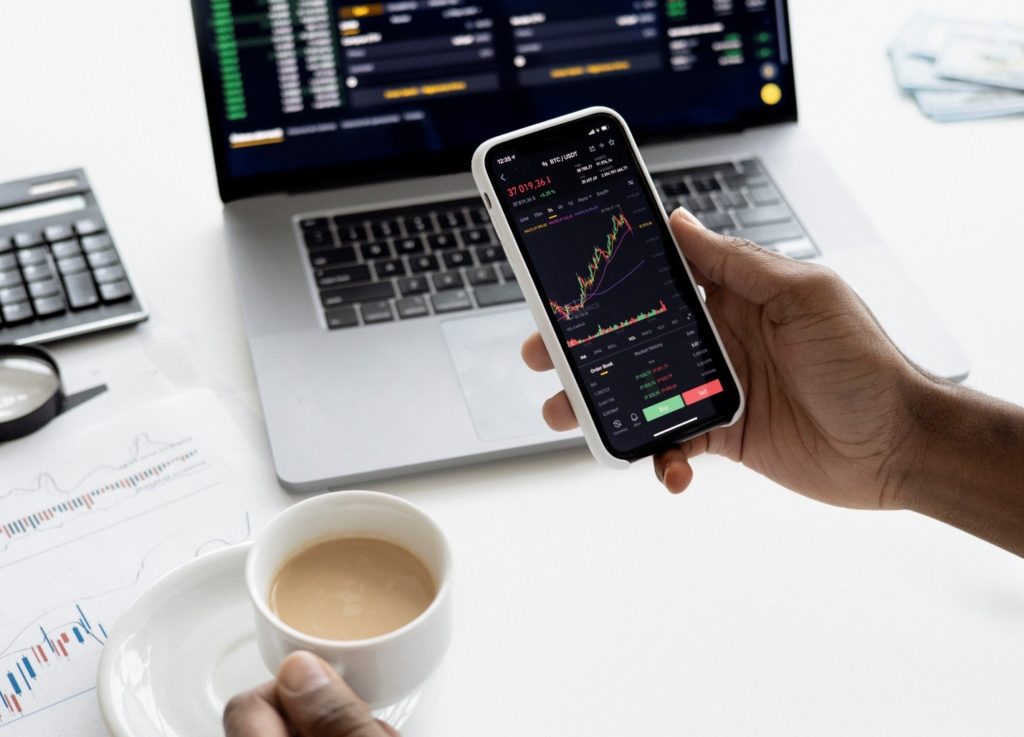Investment bank HSBC recently launched a pricing chatbot that harnesses artificial intelligence (AI) technology to provide clients with instant pricing and analytics on foreign exchange (FX) options. The chatbot uses natural language processing to gather and analyze information on pricing and liquidity; it also looks at information that may otherwise be inaccessible for clients, such as relative value analytics and volatility time-series charting. HSBC’s move reflects an industry-wide shift towards high-tech solutions to make FX trading smarter and more efficient.
What is Forex Technology?
Before we dive into FX technology, it’s important to look at what forex trading is first. FXCM defines forex as a decentralized global market where the world buys and sells currency. As the largest, most liquid market in the world with no set exchange hours for five days a week, the daily FX trading volume exceeds $5 trillion on average. Naturally, technological advancements are required to manage and transform such a large market, especially with tighter regulations complicating the system.
Forex technology is any device, software, or app that streamlines these processes, reduces trading costs, and improves overall user experience. With better technology comes increased trading volume and additional capabilities on trading platforms, allowing brokers to navigate different market conditions easily.
History of FX Tech
In early years of foreign exchange, only large companies and financial institutions had the resources to access the FX market. There was no way for individuals to compete for profit. Moreover, trade was slow and cumbersome, as companies lacked the capability to obtain information in real-time.
Fortunately, FX trading evolved as broadband cellular network technology spread. The industry saw improvements in communication, data analysis, and projections on exchange rates. Instead of a physical exchange, traders can facilitate real-time trades on online platforms — even within international time zones. Corporations and institutions no longer held the monopoly over forex either, because everyone has the same access to the information, tools, and platforms.
Key Components of Forex Technology
Modern forex technologies should offer three key components for users: accessibility, convenience, and speed:
- Accessibility: Social media, news sites, and industry reports have made foreign exchange increasingly transparent and frictionless for all.
- Convenience: Mobile technology allows users to study vast volumes of data, process it, and manage it from any location, at any time of the day.
- Speed: Executing a trade takes only a few seconds, even if you’re dealing with currency from across the globe.
The Next Five Years of Forex Tech
So what is the future of forex technology going to look like? Here are a few advancements we can expect:
- Artificial intelligence: Algorithms will be used to analyze the market and provide tips on the best trades. AI platforms allow users to skim real-time pricing data, and identify red flags to minimize their losses. Soon, the entire process can be automated as well. According to the World Economic Forum, we’re still mostly making decisions by asking other humans — but it’s essential to combine strategy with AI tools now.
- Blockchain: Based on current experiments, blockchain FX transactions can lower transaction fees through a peer-to-peer model. This eliminates the need for intermediaries and brokers, while increasing transparency and security as well.
- Cloud computing: A recent report notes that banks and buy-side institutions will adopt cloud-based FX solutions to a “significant degree” from just 26% now. Cloud-based trading platforms boast reduced costs, flexible design, high reliability, and low latency to meet the needs of work-from-home traders.
- Cognitive computing: We previously discussed how technologies are racing to combine human functions with computer programs in our article on the Future of Cognitive Computing. By stimulating human thought, future computing models would be able to assess FX risks by going through market trends, historical data, and behavioral instincts to take the uncertainty out of investing and make highly accurate predictions.
The future of FX trading is bright, but it ultimately depends on how quickly and efficiently we’ll adopt these technologies into existing structures and regulations.








Leave a Reply